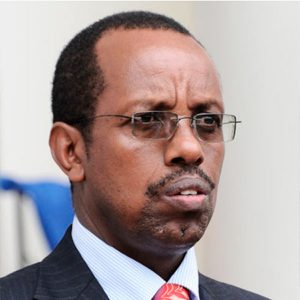As published in print with 


With over a decade’s experience at Uganda’s Ministry of Finance, Permanent Secretary Keith Muhakanizi has been responsible for helping keep the country’s economy on a steady upward path. He talks about the new opportunities for cooperation with the UK as it exits the European Union and Uganda’s transforming economy
The UK is looking to reenergise the Commonwealth as it goes through the Brexit process. Do you see opportunities for increased cooperation, investment and trade between the UK and Uganda?
With Brexit we see more opportunities for African countries, especially our country, in regard to promoting investment from the UK. We welcome Brexit. It gives us better opportunities than when the UK was part of Europe. Looking at the Commonwealth from an economic, not a political, eye – it is important for sharing our programs to the wider and part of the richer world and informing it about the opportunities we are offering in investment and economic growth. So it’s also very important for us. We should cooperate and continue promoting good policies for the prosperity of our countries and the Commonwealth.
Have you already seen an increase in interest?
Interest has dramatically improved. UK credit agencies are now providing more credit to us and other east African countries. The investment promotion and credit facilities that are being made available are also very welcome.
Besides finance, which other areas of cooperation exist for the UK and Uganda?
First of all, we have managed our economy very well, and it is projected to continue growing very fast, which means it offers opportunities for investment, including foreign direct investment (FDI). It also increases our opportunity to export our products, both traditional ones and processed goods. We believe that Africa is getting ready to grow value in manufacturing because other countries are becoming more expensive, especially Asian countries. Of course, they need a market and therefore we welcome the UK to provide market opportunities for manufactured goods and other commodities.
The theme of this fiscal year’s national budget was industrialisation for job creation and shared prosperity. Why has this become the focus?
In the recent past we have been investing heavily in infrastructure to provide roads, electricity, ICT, and water for industrial growth. We have also been training our workers to learn the skills needed for industrial development. Now, we believe we are ready for the next step and are well-suited to move towards industrialisation.
How would you describe this particular moment in the Ugandan economy?
It is going through a transformation in the sense that GDP is now becoming much more about services and manufacturing. Of course, when oil comes on stream a few years down the road, it will change the whole composition of GDP. But it will also bring more investment opportunities, which are welcome. Investments in the oil industry are slated to start this year, so we expect the economy to boom and move forward. The transformation also facilitates the creation of jobs in industrial production and agro processing.
The economic growth rate for this past year was 3.9 percent, lower that the target of 5.5 percent. How has the Ministry of Finance, Planning and Economic Development been working to bridge this gap? What is the forecast for 2018?
We could have been in a business cycle, meaning that after so many years of fast growth, the economy started going down. But we have to think about how we bring back economic growth. So that’s why we have continued to invest in infrastructure, skills, and all other critical areas to encourage more investment and increased productivity to enable faster growth. From the numbers we are starting to see, we believe that the economy is rebounding. We expect 5.5 percent growth this year.
RELATED ARTICLE
Where do infrastructure developments sit in Uganda’s economic development strategy?
Let’s look at the roads that are going to be built in Kabale. They are necessary infrastructure for oil exploitation and exports and, of course, refining. But not only will they promote oil, they will also promote that part of the region – which also has agricultural products that will be able to get to the market. They’re not only for oil’s use. They will promote the whole environment and economic growth.
How attractive is Uganda for FDI when compared to other regionally attractive countries such as Rwanda or Kenya?
We have been attracting FDI on average more than most countries. In fact, it is more than anybody could believe because we are not resource-rich, and oil was discovered only recently. We believe that will endure as long as we continue to promote the right policies and invest in the areas that matter for the private sector.
What message do you have about Uganda for businesses and the political community in the UK in this week of the Commonwealth summit?
First, of course, Africa has changed. Investing in Africa gives a higher rate of return, policies are good, and there have been major improvements in infrastructure. We are also investing in making it easier to do business and reducing unnecessary bureaucracy. Now is the time for people to invest in Africa and, in particular, Uganda.